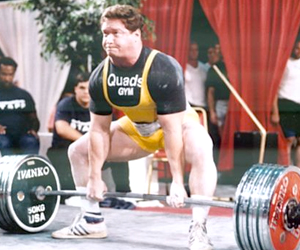Tough Decisions: To Compete or Not in Strongman?
The process for deciding on specific competitions to attend in strongman and strength sports.
To compete or not to compete. That is the question.
How do you decide on what competitions you will throw your hat into the ring for?
In the sport of strongman/strongwoman, there are often injuries to be considerate of, and for many athletes, the ultimate goal is to progress to a higher level of competition. Choosing which competitions to attend to in any given year can become a tough decision. There are more and more opportunities to compete every year, as the sport is exploding in popularity.
Should you attend as many competitions as possible, or would you be better off spacing them out to maximize your progress?
There are a quite a few factors to consider on whether you should compete or if you are better off letting this next one pass you by. Let’s break this down into the three groupings that these considerations fall under so that next time you are unsure of the competition presented to you, you’ll have an easier time of deciding on hell yes or no.
"You’ve got to know when to hold ‘em, know when to fold ‘em."
1 - Consider your skill level
Are you a beginner or are you a more advanced strongman/strongwoman competitor? This should be the first question you consider if weighing the decision to compete or not. There’s no one right age or even training age that correctly answers this question, it’s almost entirely experience-based as to whether you are still a beginner or early intermediate competitor or you’ve moved past that stage.
If you are still a beginner or early intermediate competitor, your answer to whether you should compete or not should almost always be yes, especially if your ultimate goal is to get better and progress even further.
Assess your current level with the following:
- Have you been competing for more than 2 years? (yes/no)
- Are you able to eat breakfast and stay calm despite the nerves on competition day? (yes/no)
- Do you get into a flow state when you’re performing in competition? (yes/no)
- Have you come from a background of many years in other sports at a highly competitive level? (yes/no)
- Have you experienced most common events in all event categories in competition before? (yes/no)
If you’ve answered no to most of the questions above, you’re best to continue entering into every competition you possibly can. Gain more experience and learn more advice from the competitors and judges you encounter to help you to continue to progress.
Usually, an advanced athlete will already be able to identify him or herself as such. If you consider yourself as advanced, being more judicious in picking out your competitions in order to see the best progress between competitions is important and allows you to save your best efforts for laying it all out in those competitions that really matter.
Not entering into every possible contest tends to be a favourable decision for advanced strength athletes.
Legendary powerlifter Eddy Coan would only compete twice a year. He had received the advice that there’s only so many competition attempts in the lifetime of a lifter that goes perfectly, so instead of going out and constantly pushing himself on the platform, he was quietly building himself up to be a lot better for those two competitions each year.
We see the same mentality from the top competitors in the world of strongman today.
Brain Shaw, Thor, Eddie Hall, and Big Z don’t enter competitions all year-round; they hand pick a few competitions that matter the most to them and attack those with full force each year. This means The Arnold’s and World’s Strongest Man are the two they’ve got their sights set on. The guys might also jump into another event that coincides with these bigger ones like the Australia Arnold’s which is usually the weekend after The Arnold’s.
Thor and Eddie are also still proud to be holding down Iceland’s Strongest Man and Britain’s Strongest Man, respectively. They’re not competing constantly though; they’re using the long off-season to make progress and get better for these specific contests.
2 - Assess Your Injury Status
The next consideration you’ve got to make is based on whether you’re injured or not.
Whether we’re talking about strongman or another strength sport, there’s a lot of risks involved in competing, as most athletes are going to leave nothing on the table and put a full-out effort into striving to win.
You’ve got to think about what kind of injuries you’re currently facing if you can still compete despite the injuries and the chances that you’re going to exacerbate said injuries.
Before the Sons of Samson 2018 competition, I had wanted to step back and pass on the competition because of a few nagging injuries that I sustained while training some of the competition events. One minor setback wouldn’t have been too much of a problem, but because my wrist had been tweaked and my lower back wasn’t feeling great, I felt that the events being held were too risky to perform considering it was the offseason and I didn’t want to face any greater setbacks. It happened that the events had to be changed due to the equipment getting stranded in the weather and because there were very few athletes committed to participating, I decided to go with the intention to take it easy and not hurt myself any further.
3 - Importance of Competition to You
The second consideration of whether you’re injured or not ties into the third consideration, which is the personal importance of the competition at hand.
My decision to compete in Sons of Samson 2018 was also based on the importance of the competition. The competition was held as a charity event for Lift For Kids and was located in the centre of the Brockville mall. Given that these charity events are important to the Clydsdale Power Team, I chose to still go and help to put on an entertaining show for the kids and the crowd that would be passing through the mall. My injuries were also minor enough that I could still go and play it safe.
Every athlete has those competitions that are the most important to them and that they are willing to give everything for.
Unless they are completely incapacitating injuries, you’re not going to see top level athletes backing down from the competition that they may have spent all year preparing for just because of an injury. We only get so many opportunities at the big shows that are most meaningful to us so this is where the decision to compete supersedes everything else.
While preparing for World’s Strongest Man 2010, Derek Poundstone was warming up for squats when he tore his quad and had to drop the bar mid-set. This was merely a month before the competition but he took as much time as he could to recover and still persevered to go on and compete. Despite a major injury like the quad tear, the athletes at the top level spend their whole year preparing for the chance that they might qualify for the next year’s WSM; Derek wasn’t going to let anything stop him for going and doing his best.
Athletes get injured quite frequently in competition as well. After they’ve put everything into training, if they’re already at the competition and putting everything on the line, most of the top athletes will push through the pain and setback to still try to do their best. We see classic examples of this with Kaz tearing his pec. in the steel bar bend and still going on to win the World’s Strongest Man, and Brian Shaw competing through The Arnold’s in 2012 after tearing his bicep on the first event, the Hummer tire deadlift.
By no means does any of this condone competing with one of these more serious injuries, it just goes to show that the best athletes in the world will push through to chase their goals despite being broken, beaten, and scarred.
There is an inherent long-term risk in choosing to compete despite an injury, as it may lead to further or irreparable damage. The top athletes in the world usually have access to some of the best sports doctors in the world as well; they not only have a specialist assess whether it’s a good idea or not to continue to compete with an injury, but they also have the best surgeons to help them come back from the injury.
Constant and Never-Ending Improvement
There are many factors that you should consider when deciding to compete or not if your goal is to make constant progress forward and isn’t just for fun. Start by assessing your skill level and determine if you could benefit from continuing to gain as much experience as possible. Next, you should always be cognizant of any injuries you are dealing with. Finally, you’ve got to decide for yourself how important a specific competition is to you. If you’re given what might be the chance of a lifetime and the sport is a top priority in your life, consider looking at whatever options you have to push forward whether you are injured or not to give it all you’ve got.






